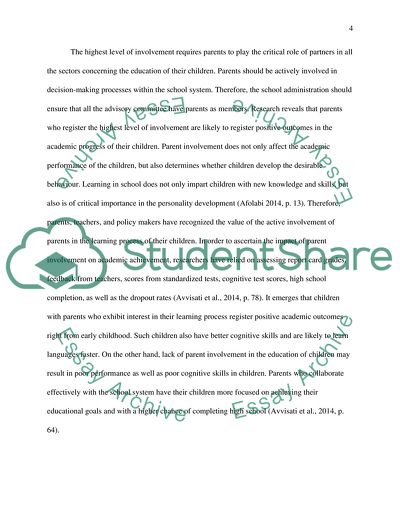Cite this document
(Parental Involvement in Childrens Education: Why Does It Make a Research Proposal Example | Topics and Well Written Essays - 2750 words, n.d.)
Parental Involvement in Childrens Education: Why Does It Make a Research Proposal Example | Topics and Well Written Essays - 2750 words. https://studentshare.org/education/1865935-research-methodology-parental-involvement-in-childrens-education-why-does-it-make-a-difference
Parental Involvement in Childrens Education: Why Does It Make a Research Proposal Example | Topics and Well Written Essays - 2750 words. https://studentshare.org/education/1865935-research-methodology-parental-involvement-in-childrens-education-why-does-it-make-a-difference
(Parental Involvement in Childrens Education: Why Does It Make a Research Proposal Example | Topics and Well Written Essays - 2750 Words)
Parental Involvement in Childrens Education: Why Does It Make a Research Proposal Example | Topics and Well Written Essays - 2750 Words. https://studentshare.org/education/1865935-research-methodology-parental-involvement-in-childrens-education-why-does-it-make-a-difference.
Parental Involvement in Childrens Education: Why Does It Make a Research Proposal Example | Topics and Well Written Essays - 2750 Words. https://studentshare.org/education/1865935-research-methodology-parental-involvement-in-childrens-education-why-does-it-make-a-difference.
“Parental Involvement in Childrens Education: Why Does It Make a Research Proposal Example | Topics and Well Written Essays - 2750 Words”. https://studentshare.org/education/1865935-research-methodology-parental-involvement-in-childrens-education-why-does-it-make-a-difference.


